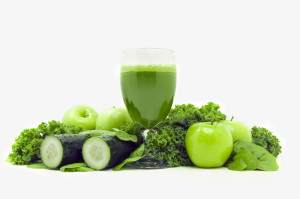By Aimee Capellan
It is only March, meaning that we are just beginning a new year. It is 2014 and with it comes a plethora of New Year’s resolutions. Most of us wish to improve our academics, be more social, and spend more time with family members, but the most popular goal is to become healthier. Some people have experience and only need some extra motivation, but the majority are bewildered as to where to even begin.
 Having no idea about how to commence our wellness-seeking journey, we find ourselves searching everywhere for guidance. There are endless websites, commercials, and books that advocate healthy eating and even offer tips and tricks to shed off that extra weight. With all of this readily available information we think, “Hey, I can just follow this advice and reach my health goal! Problem solved!” But think again. Like many other websites, these wellness blogs and articles may not always write the truth; we are unable to tell whether the content is legitimate or the author is an expert. This means it is not always safe to follow eating habits dictated by an individual behind a computer screen.
Having no idea about how to commence our wellness-seeking journey, we find ourselves searching everywhere for guidance. There are endless websites, commercials, and books that advocate healthy eating and even offer tips and tricks to shed off that extra weight. With all of this readily available information we think, “Hey, I can just follow this advice and reach my health goal! Problem solved!” But think again. Like many other websites, these wellness blogs and articles may not always write the truth; we are unable to tell whether the content is legitimate or the author is an expert. This means it is not always safe to follow eating habits dictated by an individual behind a computer screen.
Now, I’ve been jibber-jabbing about the authenticity of health and wellness resources without answering the big question: Are temporary juice fasts healthy? Juice fasts are one of those ‘health’ trends that have been going around for a while but as of 2013 and 2014, they have become very popular. This is a perfect example of advice that can be risky. I, in my inexpert opinion, do not recommend juice fasts (or any other fast) for any period of time.
Yes, juicing can be healthy; some of us are picky with our vegetables and find it easier to blend them with some fruit into a juice or smoothie. This is perfectly fine to have as a dessert or maybe even a breakfast, but definitely not for all of your daily meals. Firstly, there are nutritional needs, such as proteins and fats that will not be satisfied by a simple juice. It is possible to add ingredients with different nutritional values but it would be very difficult to fulfill all the required nutrients. Also, due to the lack of nutrient variety, you might experience low energy levels. These juices consist mostly of fruits and vegetables rich in carbohydrates and fructose. Fructose is the sugar found in fruits which, just like the sugars in donuts and candy, will spike up your blood sugar. Fructose is not a bad sugar, but just like any processed sugary food, it will cause the common ‘hype and crash’.
There might be many reasons as to why a person decides to do a juice fast but the most popular are to cleanse the body and to lose weight. If you seek to cleanse in order to have more energy or radiant skin, there is a variety of cleansing water combinations that can be consumed along with a balanced diet. If your goal is to lose some extra weight, I’d recommend the good ol` ‘eat healthy and be active’ advice. It is true that any fast will aid in weight loss, but it will result in muscle loss and other consequences (such as hair loss and fatigue). Also, since this eating regimen is impossible to follow forever, when you go back to your normal eating habits you will gain all the weight back.
As the consequences of a juice fast seem to outnumber the benefits, I do not recommend it for anyone. Juicing is a great way to eat your vegetables or just enjoy a healthy dessert. However, it is not appropriate for it to be the only meal consumed by an individual; especially us ‘high schoolers’ who are still growing up and need plenty of nutrients to nurture our strong and healthy bodies.
Bonus! This is a recipe for cleansing water that will keep you hydrated and beats all those nutritionally deprived sugary drinks!
It consists of:
-Water
-Lemon slices (keep the skin on)
-Lime slices (keep the skin on)
-Cucumber
-Your favorite fruit! Citrus fruits go well with the rest of the ingredients but other fruits such as apples will add a tasty hint of sweetness to your water!